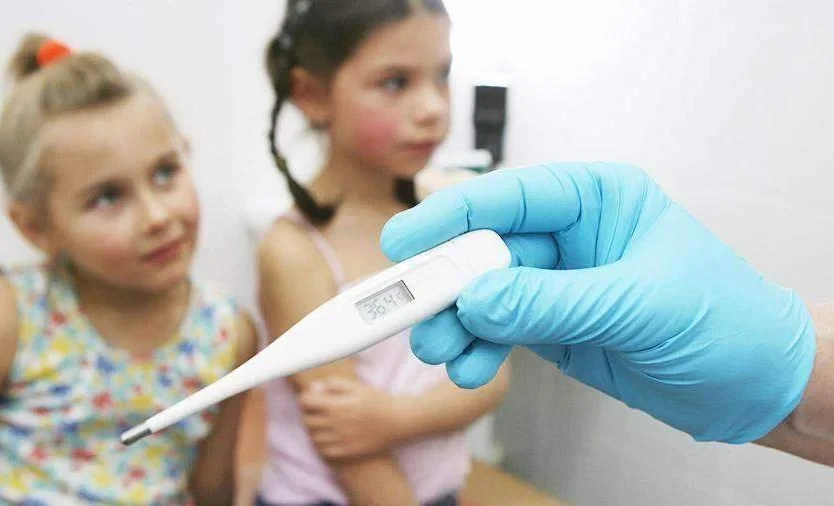
Since the beginning of the flu season in 2025, an early onset has been observed, leading to increased attention from experts. According to Ärzte-Zeitung, the season started three to four weeks earlier than in the previous two years. This, in turn, heightens concerns about the new H3N2 virus, which spreads much more easily than previously known strains.
Initial data indicate that the number of cases may increase by 20 percent compared to typical flu epidemics. An early and potentially intense spread of the flu is also being recorded outside Germany, raising concerns across Europe.
The head of the UK's National Health Service, Jim Mackey, noted that the current winter could be one of the most challenging for healthcare workers.
Symptoms of the disease
The main symptoms of the new H3N2 strain include a sharp rise in temperature, ranging from moderate to high levels, and severe malaise. Those infected also report pronounced body aches, which are characteristic of this variant. Due to the similarity of some symptoms with COVID-19, doctors advise timely testing for accurate diagnosis.
Chills are often accompanied by other symptoms, including a persistent cough, which is also known from other flu strains.
Reasons for increased attention
The reasons for heightened attention to the current flu season are related to the international situation. In Australia, the new subtype has caused a severe epidemic, with more than 400,000 laboratory-confirmed cases, a record figure. Many experts believe that this experience may foreshadow a similar situation in the Northern Hemisphere.
The high transmission rate of the new variant is explained by significant mutations within subclade K. Virologist Ulrike Protzer from the Technical University of Munich explains that these changes make it difficult for the immune system to recognize the virus.
Despite the significant number of cases, there is no data indicating that subclade K is more dangerous or causes a more severe course of the disease than other flu strains. Virologist Florian Krammer from the Medical University of Vienna emphasizes that while early activity may indicate the start of the flu season, it is just beginning in most European countries, making it difficult to predict its development.
At-risk groups
Like other flu strains, the new variant can lead to severe disease progression. The elderly and individuals with pre-existing conditions are particularly at risk, as the upcoming epidemic poses an increased threat to them.
Experts are closely monitoring the possibility of co-infection with seasonal flu and the H5N1 avian influenza virus, which could lead to the exchange of genetic segments and the emergence of new variants that can be transmitted from person to person.
The importance of vaccination
Vaccination remains the most effective means of protection, even though existing vaccines may not fully match the current viruses. Experts are confident that the emergence of the new strain does not reduce the effectiveness of vaccination.
Initial results from the UK show that the vaccine provides good protection. Moreover, even if the vaccines do not perfectly match the dominant strain, they can significantly mitigate the course of the disease. Vaccination also protects against H1N1 and influenza B.
The European Centre for Disease Prevention and Control has urged at-risk groups to get vaccinated as soon as possible, especially those over 60, individuals with chronic illnesses, pregnant women, and healthcare workers.
Professor Johannes Knobloch from the Hamburg-Eppendorf University Medical Center recommends that anyone wanting to improve their protection wear FFP2 masks in crowded places and on public transport.
According to the Robert Koch Institute, by mid-November, cases of flu, including the A(H3N2) virus, have already been registered in Germany. Despite this, a sharp increase in cases has not yet been observed.
According to the latest report, the number of "acute respiratory diseases" continues to rise but remains at a moderate level. However, as the situation in Hamburg shows, where 129 cases of flu have been registered (compared to 68 during the same period last season), it is important not to underestimate the situation.
Three cases of death from flu have also been reported in Hamburg, while there have been 11 in the country. Dr. Michael Wünning, chief physician at Marienkrankenhaus, noted that caution must be exercised in hospitals to prevent infection among medical staff and the isolation of patients.
Chairwoman of the Hamburg Association of General Practitioners, Jana Husemann, also emphasizes that the number of consultations is increasing. "While it is still early to judge whether this season will be more severe than the previous one, now is the right time to get vaccinated against the flu at your clinic," she added in an interview.















